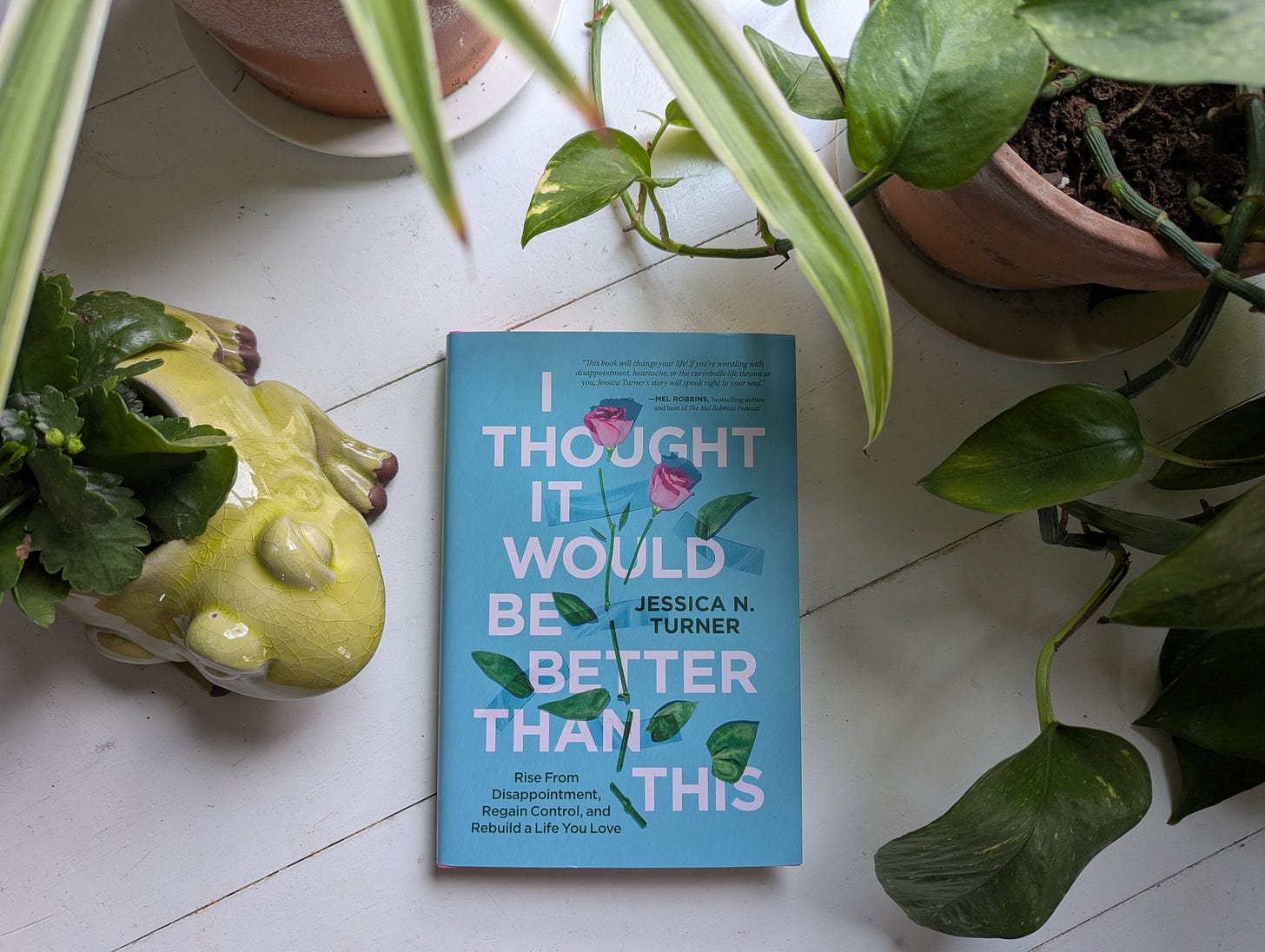Last week I sat in bed and, on a whim, pieced together an 8 second IG Reel using a photo I’d taken while mopping the floors at work. It was a close-up of the table next to the dishwashing window, where lunch guests deposit their trays. For the six years I’ve worked there, the table’s front leg has been braced by a plastic fork, industriously taped into position. It’s hard to imagine a flimsy plastic fork effectively keeping a hard-working table in business, yet the table stands. I wouldn’t dare tempt fate by untaping that fork. Would you?
I can attest that community kitchens, food banks, and non-profits are filled with scrappy folks who are pros at using what’s available and rolling with every metaphorical punch. That afternoon, mop in hand, I couldn’t ignore the contrast between my surroundings and the gilded castles of those who have decided that what’s hiding in our corners is not wobbly furniture, but actual waste and legitimate fraud. It made me angry.
So I showed a wannabe-King in his castle. And I showed the plastic fork. And I told the truth - that the $1billion USDA cuts amount to a loss of $27.5 million to Indiana food banks and schools. Trickle-down economics, but inverted.
The Reel caught traction but the next day was less fun, when the bots showed up. As the drama ratcheted up, so did the views. I learned firsthand, for the first time, that all it takes to go (mildly) viral is an extreme reaction. Make people mad. Show them a common enemy. The narrative writes itself.
I have no regrets. Sharing our daily realities in nonthreatening ways is powerful, necessary work. We cannot always anticipate an angry mob. What struck me was the unwillingness to engage thoughtfully. I am a rare bird that enjoys (healthy) disagreement. That’s not what it was. It was lazy. “You’re a liar!” And it was intensely mean. It didn’t matter that I clearly shared my sourced. It didn’t matter that the information is widely available. It didn’t matter that I let the facts speak for themselves. My 8-second clip touched a nerve that logic could not soothe. These days, if I don’t like your reality, I simply say it’s fake.
Back in the early throes of March, Lent felt like a wide open clearing. There was plenty of time to get my act together and announce myself as properly spiritual. Somewhere, I have a little notebook where I outlined weekly writing ideas, one of which was a deep-dive on “With Love, Meghan”, the Netflix lifestyle show by Meghan of Sussex1 in which she referred to her dear friend in episode 1 as someone who has been there for her “in the before, the during, and the after.” Infinite subtext! I was glued.
I imagined reflection. Always, I imagined metaphor. But as usual, life had different ideas. My Lent felt spotty at best. I kept only the rhythm of reading a couple of designated books which, for the past month, have effectively braced my faith against the tremors of being a person in 2025. I’ve spent more time than usual considering death (and that was before we started watching the newest season of Handmaid’s Tale.) Last week, as the virtual spittle of manufactured rage flew at me, I pondered the virus of hatred in my own sporadically-hateful heart.
Does that count as a solid Lenten practice?
As luck would have it, I was able to spend the past two Fridays being discipled by the men and women at work release. The Friday Bible study currently finds us in the book of Mark, with Jesus standing next to Pilate as an angry mob unites around a common enemy. Both weeks running, we’ve contemplated not only the betrayal and physical pain of Jesus, but the profound sense of abandonment he must have felt as his closest friends defaulted to their base emotion of fear.
Earlier this morning, I had listened to an interview with Far-Right Activist Christopher Rufo in which he summarized his grand plan of dismantling higher education through government threats and punishment. “Fear,” he said sharply, “is a great motivator.” We see the accuracy of this statement in every stratum of daily life. It’s woven into our parenting (and our memories of being parented.) Our financial decisions. The endless political terrors. Most devastatingly, it colors our faith all the way to the edges. A shared enemy, if we’re willing to be honest. So much of what we say we believe is dependent upon our fears remaining intact.
Today at work release, the question that kept us five minutes past our ending time was this: Are we willing to believe God only ever loves us? More to the point, why is this good news so terrifying? The discussion flowed from Eden, to Noah and the ruin of mankind, to Paul’s description of Jesus (and by virtue, God) in 1 Corinthians 13.
God is Love. Love is not easily angered. Love keeps no record of being wronged. Did God really destroy (almost) all of mankind? Or are there alternative explanations that better match God’s character? We bantered and mused and counter-pointed. Toward the end of the conversation, with the mental image of Jesus and Pilate still fixed in our minds along with the myriad fears of everyone in the scene, Andy2 confidently interjected from the back of the room, “Okay, so this is how it actually happened,” as if he had been there in the flesh and now held the key to sorting it all out. The room erupted in laughter that could only be described as love.
If we care enough to dig beneath the anger we almost always find fear. Bots are incapable of human emotion, but it’s helpful for me to remember that hate - every flavor - is built on the bedrock of fear. The anger I struggle with daily toward politicians and their breathless supporters is sown in the terror that things are spiraling past the legal and ethical bounds. That’s scary. Sometimes our anger is rooted in the fear of being wrong, or the fear of being excluded, or the fear of losing power. Maybe it’s the fear of insecurity. Or powerlessness. Maybe it’s completely warranted, and meant to move us toward action. If we excavate deeply enough, we’ll find it every time.
Our shared enemy is fear. The universal antidote is only ever Love. I’m not talking about the sappy, clappy, ditzy, oblivious, AI-generated, Sunday school, “positive vibes only,” budget-bin love. I mean the kind that requires us to dig deep. The kind that costs us something.
Days after the Great Spiraling of my humble Reel, I set aside some time for a sacred cleansing, remembering I don’t have to make space for hate, regardless of its source. I blocked the bots and deleted every nasty comment3 but not until I first blessed them for helping half a million people see the plight of the feeders, and for reminding me to keep wrestling down to the root of my own complicated emotions.
I don’t imagine an immediate future where I eradicate fear from my life. The facts on the ground are providing us with plenty of danger. But in this whatevereth week of Lent, I am doubling down on Love, believing full-stop that it is the Way of God. As Sara Miles says, God is always happening, which means Love is always happening. It is up to us to be on the lookout for it, and to add it to the bucket whenever we find it.
Fear is the weight. We do not always have the option of setting it down.
Love is the counterweight. We hold on as if our lives depend on it.
It is chatting with Anthony about our shared love of movies while I wiped down the lunch tables. It is fist-bumping Michael, after we were the only two people in the room to choose Indiana as the state where we’d most like to live. Love is my kid joking with me from the corner of the couch, bundled in a blanket during a disappointingly cold and boring Spring Break. Love is forsythia glowing in the snow. Love is every person who refuses to be afraid of the facts, even if we disagree about how to approach them.
Love turns down the heat. It quiets the mob.
Love is the feast. It is the table laden with scraped-clean dishes. It is the fork, pushed into the wiggle room reserved for our human fears, holding us together, somehow.
My friend Jessica N. Turner is a fitting example of moving through disappointment and fear. Her new book, I Thought it Would be Better Than This, is a candid look at how she reoriented herself toward Love after her husband coming out as gay and their marriage ended in utter shock. She knows, as we all do, if we’re being honest, that life often feels like it should just be better than this. Through the vulnerable sharing of her story, Jessica also offers a generous guide for anyone moving through major transitions or everyday disappointments. (Click the button below to grab your copy.)
We have been instructed against calling her Meghan Markle!
Not his real name.
I deleted every hateful comment regardless of their position. I always welcome disagreement and even surly disagreement. Dishonoring someone’s humanity is where I tend to draw the line. (I am also sure I missed some, as there are over 600!)






Shannan, thanks for your continued graceful presence and responses. I'm so sorry you had to experience the rage, but grateful for you sharing your process and for the grace you extend. I'm trying to imitate your example!
I need this in a shirt — “Our shared enemy is fear. The universal antidote is only ever Love.” Such beautiful truth.